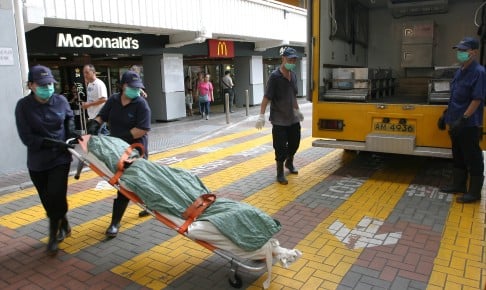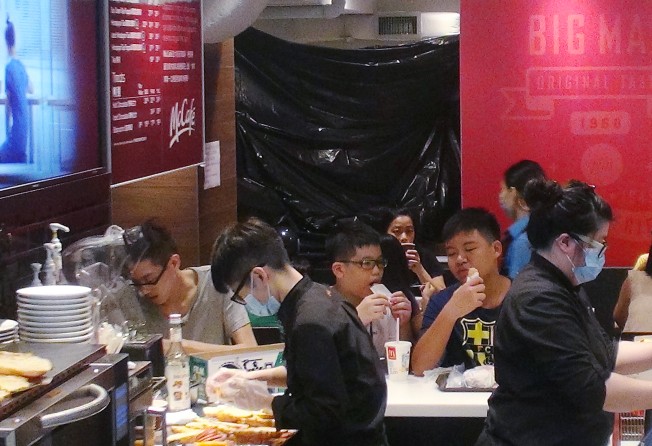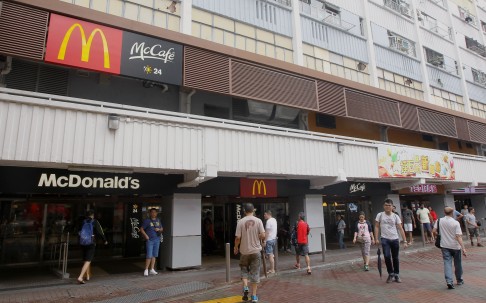
Save our McRefugees: Woman’s lonely unnoticed death in Hong Kong McDonald’s highlights need to help homeless
Discovery of dead woman who spent 24 hours in fast-food restaurant highlights worsening plight of city’s homeless, say concern groups

The lonely death of a homeless woman at a 24-hour McDonald’s outlet has put the spotlight on the need to help “McRefugees” who spend all night at the fast-food chain’s branches because they have nowhere else to go.
Concern groups yesterday urged the government to take immediate steps, such as imposing rent controls, building homeless shelters in the short term and building more public housing.
Meanwhile, the Social Welfare Department said it was “highly concerned” about the plight of street sleepers and help was available.
The dead woman, who had gone unnoticed by staff and customers, was found slumped over a table at 8.30am on Saturday – 24 hours after she entered the outlet at Ping Shek Estate in Kowloon Bay. It is believed she was a street sleeper who regularly spent nights in McDonald’s.
CCTV footage showed the woman, aged between 50 and 60, entering the restaurant at 8.39am on Friday. At 1.20am on Saturday, she suddenly slumped over the table. Nobody paid her any attention as customers ate their late-night meals around her.
Wendy Lam, senior director of corporate affairs for McDonald’s Hong Kong, expressed grief over the incident, promising that the fast food chain would cooperate with police in their investigation.
McDonald’s clarified that the woman had not ordered any food but staff noticed that she was moving, and she had asked for water from the counter.
“To complement the modern lifestyle of people in Hong Kong, some McDonald’s restaurants operate 24 hours a day. We welcome everyone to visit out restaurants any time,” Lam said.
“In order to provide a pleasant dining environment, we would not disturb our customers, but our service will be offered promptly upon request.”
Concern groups said the woman’s death was tragic, pointing out that some homeless people were not unemployed – but because their salaries were so low they would rather spend their little money on food than rent.
“A subdivided flat of just 30 sq ft in Sham Shui Po would cost you HK$2,000 a month to rent these days,” said Lee Tai-shing, chief community organiser for the Concerning CSSA and Low Income Alliance.
Since 2004, the Social Welfare Department has allocated funds to three non-governmental organisations to run help services for the homeless. Last year, the NGOs were awarded about HK$11.4 million between them.
Despite such efforts, the number of street sleepers registered with the department has doubled from 393 in December 2010 to 806 in January this year.
Society for Community Organisation social worker Ng Wai-tung estimated that there were 1,500 homeless people in the city – double the registered figure.
He said the government should implement rent controls so that landlords could not increase rents sharply every year.
A Social Welfare Department spokesman said it provided services including short-term hostel placement, employment guidance and emergency relief funds to cover short-term rent payments and other living expenses.
The department also subvents the NGOs to operate five urban hostels and two emergency shelters, providing a total of 202 accommodation places.
